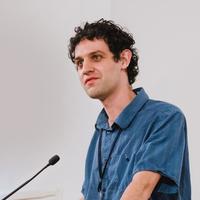‘What can we learn from gravitational waves?’
'What can we learn from gravitational waves?’
Date: Saturday, October 28, 2023 - 10:30-13:30
Venue: Martin Wood Lecture Theatre, Clarendon Laboratory

Prof Steven Balbus FRS, FInstP
'Gravitational radiation: an overview'
General Relativity, Einstein’s relativistic theory of gravity, predicts that the effects of gravitational fields propagate across the Universe at the speed of light. This is very much in the spirit of Maxwell’s theory of electrodynamics, the first fully relativistic theory to enter physics. Einstein’s theory is more complicated, however, because waves of gravity are themselves a source of gravitational radiation! But when the waves are small in amplitude, as they are in contemporary observations, their effects may be understood in terms of concepts very familiar to us: they cause small tensorial distortions of space, carrying energy and angular momentum which can measurably change the orbits of binary stars. First studied by Einstein in 1916, gravitational waves were detected directly in 2015, after a century of technical advancement allowed these incredibly tiny (a fraction of a proton radius!) wave distortions to be measured. In the last eight years, gravitational wave detection has become a powerful tool used by astrophysicists to reveal previously unknown populations of black holes, and perhaps something about the earliest moments of the birth of the Universe.
Please email tpadmin@physics.ox.ac.uk if you would like to view the slideshow presentation for this talk.

'Searching for the origin of black hole mergers in the Universe with gravitational waves'
The direct detection of gravitational waves by LIGO and VIRGO and pulsar timing arrays has recently opened a new window to observe the Universe. We can now detect objects which are completely invisible in traditional electromagnetic surveys including black holes and possibly dark matter. The observations show a very frequent rate of black hole mergers in the Universe with unexpected properties. In this talk I will review the astrophysical processes that may be responsible for the formation of the observed events. I will show that the standard astrophysical merger pathways are already in tension with LIGO/VIRGO observations. New ideas may be needed to explain the origin of the detected sources. I will discuss several exotic possibilities including the hypothesis that if dark matter is in part made up of black holes in galaxies they may contribute to the observed events or the possibility that stellar mass black holes may be teeming around supermassive black holes at the centres of galaxies, which may be a possible sight to produce gravitational wave events.
Please email tpadmin@physics.ox.ac.uk if you would like to view the slideshow presentation for this talk.

'Possible sources for the gravitational wave background'
The detection of gravitational waves from the coalescence of black holes has opened a new window for astronomy. Besides individual mergers, one can study the stochastic gravitational-wave background, i.e. the sum of all gravitational waves arriving at Earth, which are not from resolved sources. In this talk I will give an overview of the current predictions for this background, over a range of frequencies -- from binary neutron stars at 100 Hz to the mergers of super-massive black holes at 10^(-8) Hz, and even further to primordial gravitational waves generated during inflation. Of these, none have so far been detected, save for a signal consistent with a background from super-massive black hole coalescences. I will touch on how background sources are modelled, and on how these can be used to extend our understanding of physics.
Please email tpadmin@physics.ox.ac.uk if you would like to view the slideshow presentation for this talk.



